What can COLEACP’s Research & Innovation department do for you?
- 14/02/2022
- Posted by: Gaetan Dermien
- Category: ACP EN, Africa, Angola, Benin, Burkina Faso, Burundi, Caribbean, Côte d'Ivoire, Democratic Republic Of The Congo, Dominican Republic, Ethiopia, Fiji, Ghana, Guinea, Madagascar, Mali, Mauritius, News, Nigeria, Pacific, Rwanda, Senegal, Sierra Leone, Suriname, Tanzania, Togo, Uganda, Zimbabwe
No Comments On 25 January, COLEACP’s Research & Innovation department held a videoconference, to introduce the department’s range of activities and services. Regulatory monitoring tools: You can follow events at European and international levels via interactive dashboards and online databases, to support monitoring of regulations and rapid adaptation to changes (MRLs, PPP approvals, TRACES, RASFF, and e-GAP) Field trials to find new alternatives to control priority pests: How are trial activities scheduled? Learn about the 18 trials implemented since 2019, and our… +
On 25 January, COLEACP’s Research & Innovation department held a videoconference, to introduce the department’s range of activities and services. Regulatory monitoring tools: You can follow events at European and international levels via interactive dashboards and online databases, to support monitoring of regulations and rapid adaptation to changes (MRLs, PPP approvals, TRACES, RASFF, and e-GAP) Field trials to find new alternatives to control priority pests: How are trial activities scheduled? Learn about the 18 trials implemented since 2019, and our… +Three new market profiles from Fit For Market
- 11/02/2022
- Posted by: Gaetan Dermien
- Category: Burkina Faso, French beans, Guinea, Mali, Mangosteens, News, Pineapples, Sweet potatoes
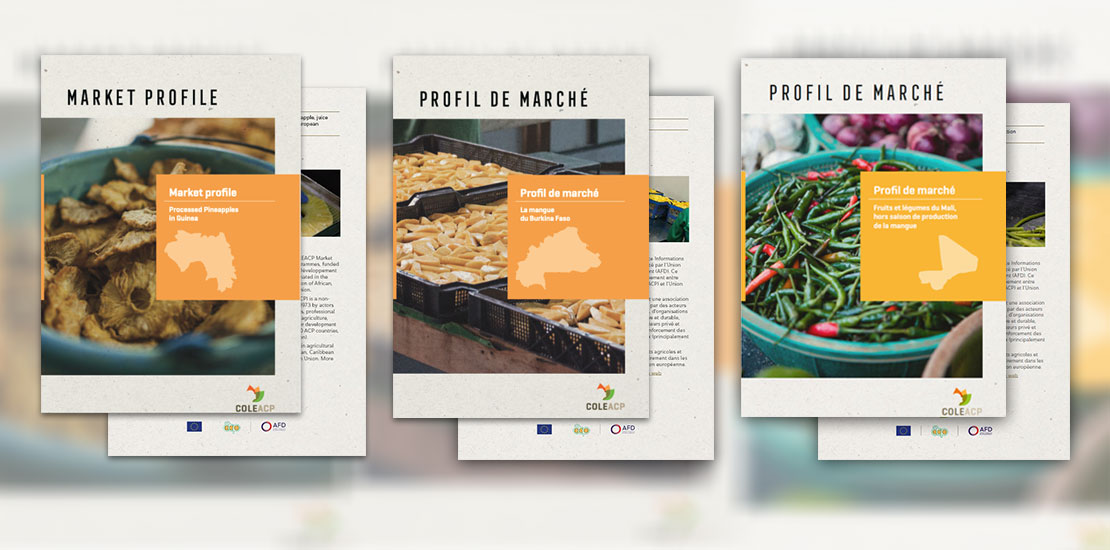 Processed pineapples (Guinea), mango (Burkina Faso), and off-season fruit and vegetables (Mali) Processed pineapples in Guinea This market profile focuses on the market opportunities for a selection of three processed pineapple products (dried pineapple, juices and syrups) in the Guinean, West African and European markets. Despite the decline in African pineapple exports to the EU due to strong competition with the MD2 variety from Costa Rica, pineapple is one of the priority commodities in Guinea’s agricultural sector recovery programme, for… +
Processed pineapples (Guinea), mango (Burkina Faso), and off-season fruit and vegetables (Mali) Processed pineapples in Guinea This market profile focuses on the market opportunities for a selection of three processed pineapple products (dried pineapple, juices and syrups) in the Guinean, West African and European markets. Despite the decline in African pineapple exports to the EU due to strong competition with the MD2 variety from Costa Rica, pineapple is one of the priority commodities in Guinea’s agricultural sector recovery programme, for… +News Digest: agri-food production, markets and trade
- 11/02/2022
- Posted by: Gaetan Dermien
- Category: Angola, Avocados, Bananas, Benin, Burkina Faso, Burundi, Cameroon, Caribbean, Citrus fruits, Coconuts, Côte d'Ivoire, Democratic Republic Of The Congo, Dominican Republic, Ethiopia, Fiji, French beans, Gambia, Ghana, Kenya, Lychees, Madagascar, Mali, Mangoes, Mauritius, Melons, News, Nigeria, Onions, Pacific, Papayas, Potatoes, Rwanda, Senegal, Sierra Leone, Suriname, Tanzania, Togo, Tomatoes, Uganda, Zimbabwe
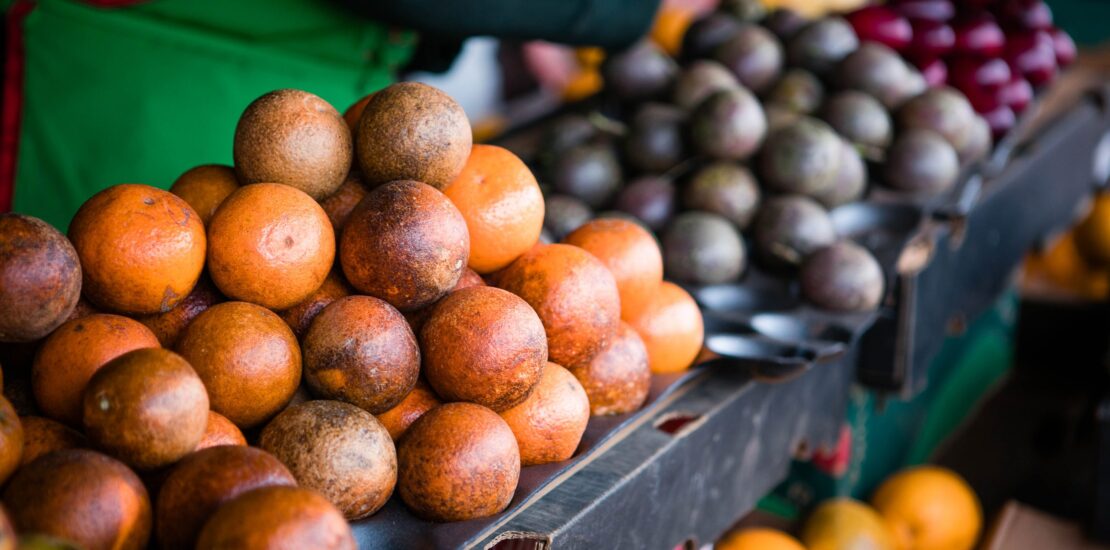 PRODUCTION AND PROCESSING Africa UEMOA attempts to respond to soaring fertiliser prices The Ministers of Agriculture and Trade of the West African Economic and Monetary Union (UEMOA) met in Cotonou, Benin in December to discuss the soaring price of fertilisers and their availability. This is a situation faced by most countries in the world, but which is more acute in sub-Saharan Africa, where the rate of dependence on imports of both phosphorus and nitrogen is around 70%, and in a… +
PRODUCTION AND PROCESSING Africa UEMOA attempts to respond to soaring fertiliser prices The Ministers of Agriculture and Trade of the West African Economic and Monetary Union (UEMOA) met in Cotonou, Benin in December to discuss the soaring price of fertilisers and their availability. This is a situation faced by most countries in the world, but which is more acute in sub-Saharan Africa, where the rate of dependence on imports of both phosphorus and nitrogen is around 70%, and in a… +News digest: agri-food systems and sustainability
- 10/02/2022
- Posted by: Gaetan Dermien
- Category: Africa, Angola, Benin, Burkina Faso, Burundi, Cameroon, Caribbean, Côte d'Ivoire, Democratic Republic Of The Congo, Dominican Republic, Ethiopia, Fiji, Ghana, Guinea, Kenya, Madagascar, Mali, Mauritius, News, Nigeria, Pacific, Rwanda, Senegal, Sierra Leone, Suriname, Tanzania, Togo, Uganda, Zimbabwe
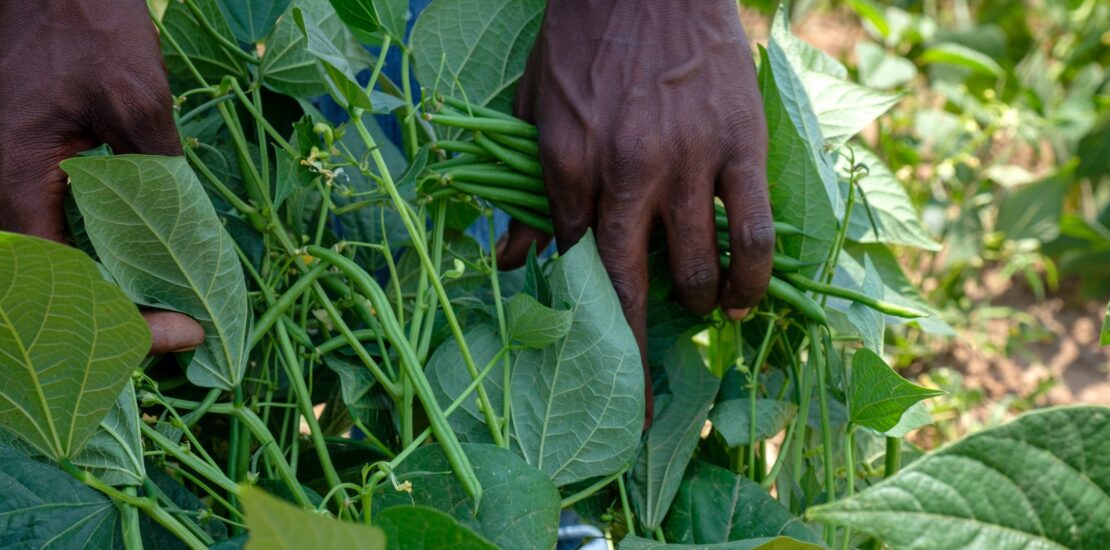 FOOD SYSTEMS AND POLICY Trade relations between the European Union and Africa: forging new partnerships On 10 January, in the context of the French Presidency of the Council of the European Union and ahead of the European Union-African Union Summit scheduled for February 2022, Franck Riester, French Minister Delegate for Foreign Trade and Economic Attractiveness, held an international ministerial conference dedicated to the prospects of the European trade partnership with Africa. The overhaul of the partnership between the European Union… +
FOOD SYSTEMS AND POLICY Trade relations between the European Union and Africa: forging new partnerships On 10 January, in the context of the French Presidency of the Council of the European Union and ahead of the European Union-African Union Summit scheduled for February 2022, Franck Riester, French Minister Delegate for Foreign Trade and Economic Attractiveness, held an international ministerial conference dedicated to the prospects of the European trade partnership with Africa. The overhaul of the partnership between the European Union… +Message to our members and partners
- 09/02/2022
- Posted by: Gaetan Dermien
- Category: Angola, Benin, Burkina Faso, Burundi, Cameroon, Caribbean, Côte d'Ivoire, Democratic Republic Of The Congo, Dominican Republic, Ethiopia, Fiji, Gambia, Ghana, Guinea, Kenya, Madagascar, Mali, Mauritius, News, Nigeria, Pacific, Rwanda, Senegal, Sierra Leone, Suriname, Tanzania, Togo, Uganda, Zimbabwe
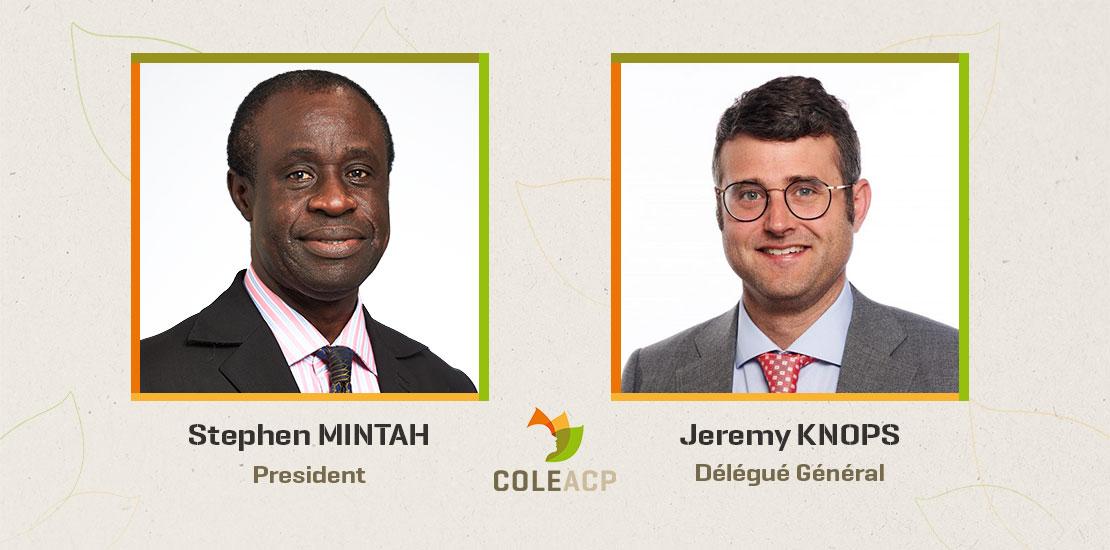 Dear friends of COLEACP, On behalf of COLEACP and the team, we are pleased to send you our best wishes for 2022, and especially we wish you and your loved ones very good health. We are approaching this new year with cautious optimism, while launching an appeal to the whole COLEACP family to continue to mobilise our individual and collective efforts, which contribute to building a fairer and more sustainable agri-food system. In an international context that – due to… +
Dear friends of COLEACP, On behalf of COLEACP and the team, we are pleased to send you our best wishes for 2022, and especially we wish you and your loved ones very good health. We are approaching this new year with cautious optimism, while launching an appeal to the whole COLEACP family to continue to mobilise our individual and collective efforts, which contribute to building a fairer and more sustainable agri-food system. In an international context that – due to… +Amendment to the EU plant health legislation – applicable from 11th April 2022
- 31/01/2022
- Posted by: Gaetan Dermien
- Category: Africa, Benin, Burkina Faso, Burundi, Cameroon, Caribbean, Côte d'Ivoire, Country, Democratic Republic Of The Congo, Ethiopia, Ghana, Guinea, Guinea-Bissau, Haiti, Headline, Kenya, Madagascar, Mali, Mauritius, News, Nigeria, Pacific, Republic of the Congo, Rwanda, Senegal, Sierra Leone, Tanzania, Togo, Uganda, Zimbabwe
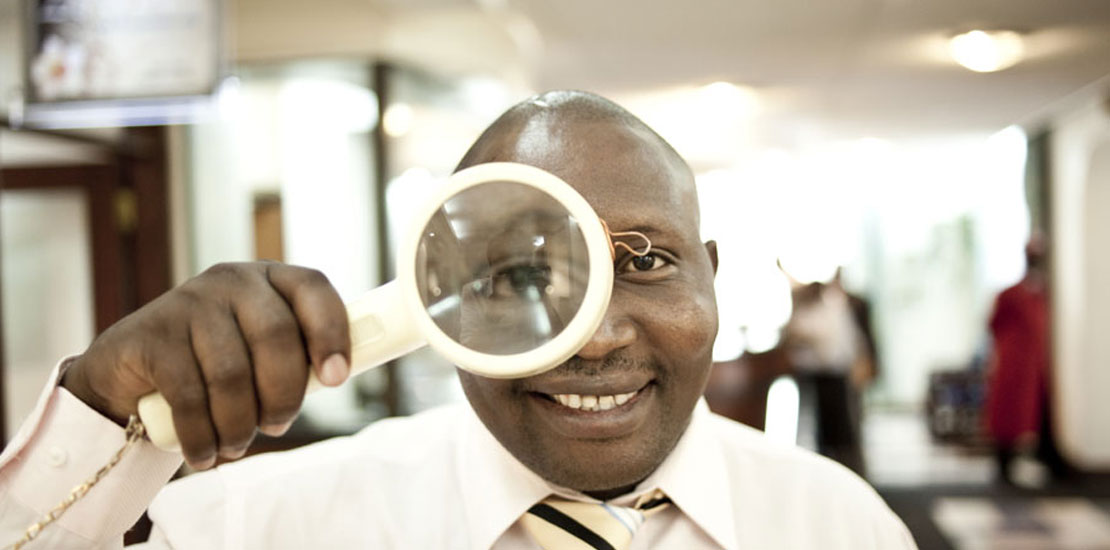 In August 2021, COLEACP issued a Flash Info advising of a public consultation by the European Commission on proposed amendments to the EU plant health legislation. The resulting amendments have now been incorporated into the new Commission Implementing Regulation (EU) 2021/2285, published on 14th December 2021. These amendments concern the listing of pests, prohibitions and requirements for the introduction into, and movement within the European Union of plants, plant products and other objects (amending Regulation (EU) 2019/2072). They will apply… +
In August 2021, COLEACP issued a Flash Info advising of a public consultation by the European Commission on proposed amendments to the EU plant health legislation. The resulting amendments have now been incorporated into the new Commission Implementing Regulation (EU) 2021/2285, published on 14th December 2021. These amendments concern the listing of pests, prohibitions and requirements for the introduction into, and movement within the European Union of plants, plant products and other objects (amending Regulation (EU) 2019/2072). They will apply… +Update on EU MRL changes
- 19/01/2022
- Posted by: Gaetan Dermien
- Category: Afghanistan, Albania, Algeria, Andorra, Angola, Anguilla, Antigua and Barbuda, Argentina, Armenia, Aruba, Australia, Austria, Azerbaijan, Bahamas, Bangladesh, Barbados, Belarus, Belgium, Belize, Benin, Bermuda, Bhutan, Bolivia, Bosnia and Herzegovina, Botswana, Brazil, Bulgaria, Burkina Faso, Burundi, Cambodia, Cameroon, Canada, Cape Verde, Central African Republic, Chad, Chile, China, Colombia, Comoros, Cook Islands, Costa Rica, Côte d'Ivoire, Croatia, Cuba, Cyprus, Czech Republic, Democratic Republic Of The Congo, Denmark, Djibouti, Dominica, Dominican Republic, Ecuador, Egypt, El Salvador, Equatorial Guinea, Eritrea, Estonia, Eswatini, Ethiopia, Faroe Islands, Federated States of Micronesia, Fiji, Finland, France, French Guiana, French Polynesia, Gabon, Gambia, Georgia, Germany, Ghana, Greece, Greenland, Grenada, Guadeloupe, Guam, Guatemala, Guinea, Guinea-Bissau, Guyana, Haiti, Headline, Honduras, Hong Kong, Hungary, Iceland, India, Indonesia, Iran, Iraq, Ireland, Israel, Italy, Jamaica, Japan, Jordan, Kazakhstan, Kenya, Kiribati, Kuwait, Kyrgyzstan, Latvia, Lebanon, Lesotho, Liberia, Liechtenstein, Lithuania, Luxembourg, Macao, Madagascar, Malawi, Malaysia, Maldives, Mali, Malta, Marshall Islands, Martinique, Mauritania, Mauritius, Mayotte, Mexico, Monaco, Mongolia, Montserrat, Morocco, Mozambique, Myanmar, Namibia, Nauru, Nepal, Netherlands, New Caledonia, New Zealand, News, Nicaragua, Niger, Nigeria, Niue, Northern Mariana Islands, Norway, Oman, Pakistan, Palau, Panama, Papua New Guinea, Paraguay, Peru, Philippines, Poland, Portugal, Puerto Rico, Qatar, Republic of Korea, Republic of the Congo, Réunion, Romania, Russian Federation, Rwanda, Saint Helena, Saint Kitts and Nevis, Saint Lucia, Saint Vincent and the Grenadines, Samoa, San Marino, Sao Tome and Principe, Saudi Arabia, Senegal, Serbia and Montenegro, Seychelles, Sierra Leone, Singapore, Slovakia, Slovenia, Solomon Islands, Somalia, South Africa, Spain, Sri Lanka, Sudan, Suriname, Sweden, Switzerland, Syria, Taiwan, Tajikistan, Tanzania, Thailand, Timor-Leste, Togo, Tokelau, Tonga, Trinidad and Tobago, Tunisia, Turkey, Turkmenistan, Tuvalu, Uganda, Ukraine, United Arab Emirates, United Kingdom, United States, Uruguay, Uzbekistan, Vanuatu, Venezuela, Vietnam, Yemen, Zambia, Zimbabwe
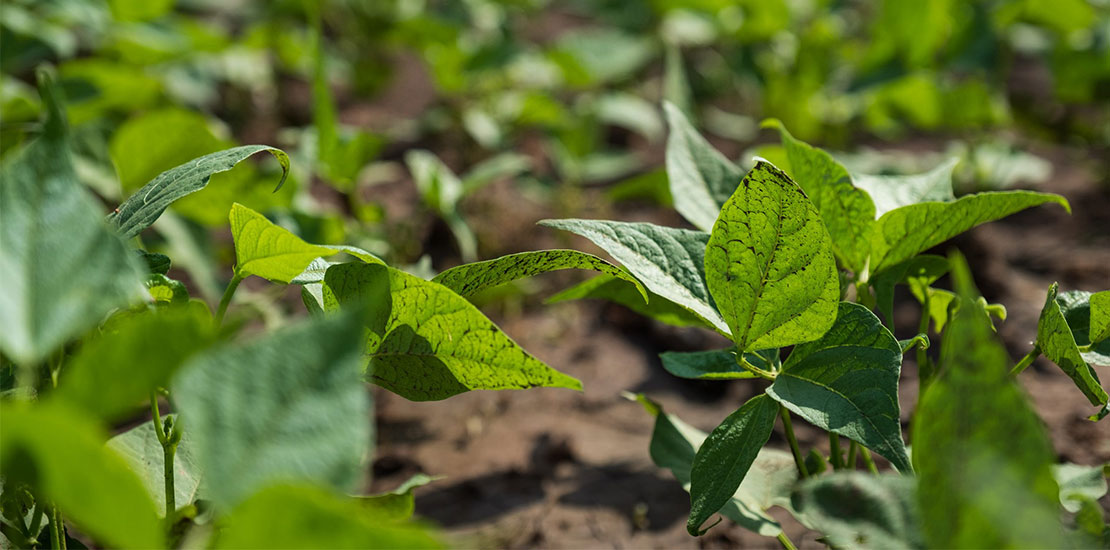 Key points Since our latest news in December 2021, we are highlighting some significant changes affecting five active substances (acequinocyl, Bacillus subtilis strain IAB/BS03, emamectin, flutolanil, and imazamox) used in crop protection (Reg. (EU) 2021/2202). In particular, emamectin is important and widely used in ACP horticulture. The latest changes involve an increase in MRLs for peaches and kiwi fruits. The new Maximum Residue Limit (MRL) for peaches is 0.15 mg/kg (previously 0.03 mg/kg) and for kiwis the new MRL is… +
Key points Since our latest news in December 2021, we are highlighting some significant changes affecting five active substances (acequinocyl, Bacillus subtilis strain IAB/BS03, emamectin, flutolanil, and imazamox) used in crop protection (Reg. (EU) 2021/2202). In particular, emamectin is important and widely used in ACP horticulture. The latest changes involve an increase in MRLs for peaches and kiwi fruits. The new Maximum Residue Limit (MRL) for peaches is 0.15 mg/kg (previously 0.03 mg/kg) and for kiwis the new MRL is… +Fit For Market+: a new EU-OACPS programme
- 21/12/2021
- Posted by: Gaetan Dermien
- Category: Africa, Angola, Benin, Burkina Faso, Burundi, Cameroon, Caribbean, Côte d'Ivoire, Dominican Republic, Ethiopia, Gambia, Ghana, Guinea, Kenya, Madagascar, Mali, Mauritius, News, Nigeria, Pacific, Republic of the Congo, Rwanda, Senegal, Sierra Leone, Suriname, Tanzania, Togo, Zimbabwe
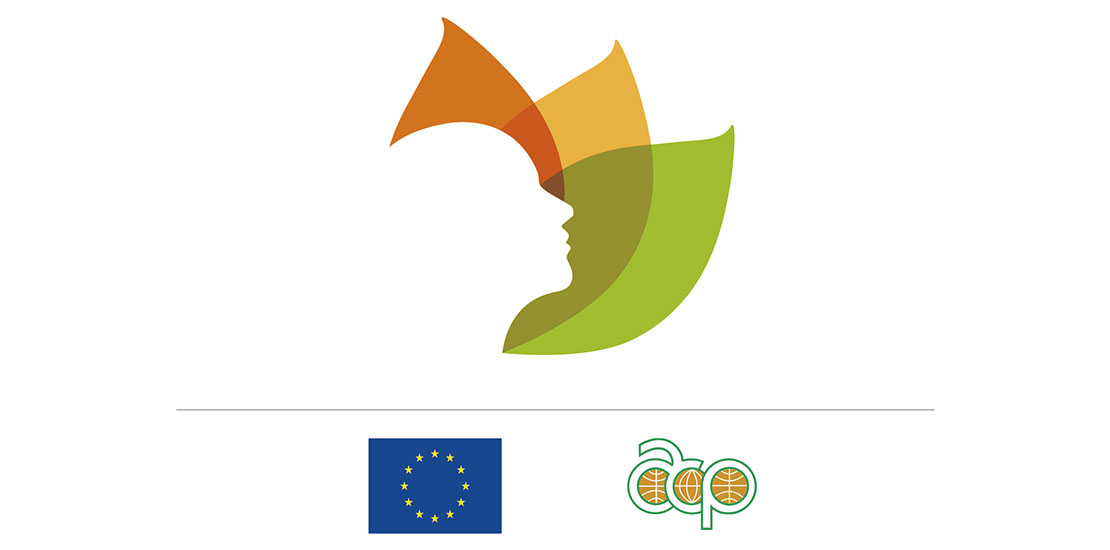 Fit For Market, “plus” mitigating the impacts of the COVID-19 pandemic by strengthening the sustainability of the ACP horticultural sector From 2022 COLEACP will implement a new EU/OACPS-funded programme that builds on 20 years’ achievements to confront the unprecedented challenges – and opportunities – faced by ACP horticultural value chains today. This new five-year, €25 million programme – “Fit For Market+ : Mitigating the impacts of the COVID-19 pandemic by strengthening the sustainability of the ACP horticultural sector” – will… +
Fit For Market, “plus” mitigating the impacts of the COVID-19 pandemic by strengthening the sustainability of the ACP horticultural sector From 2022 COLEACP will implement a new EU/OACPS-funded programme that builds on 20 years’ achievements to confront the unprecedented challenges – and opportunities – faced by ACP horticultural value chains today. This new five-year, €25 million programme – “Fit For Market+ : Mitigating the impacts of the COVID-19 pandemic by strengthening the sustainability of the ACP horticultural sector” – will… +EU approval not renewed for four key PPPs and other changes notified to WTO
- 16/12/2021
- Posted by: Gaetan Dermien
- Category: Afghanistan, Africa, Albania, Algeria, Andorra, Angola, Anguilla, Antigua and Barbuda, Argentina, Armenia, Aruba, Australia, Austria, Azerbaijan, Bahamas, Bangladesh, Barbados, Belarus, Belgium, Belize, Benin, Bermuda, Bhutan, Bolivia, Bosnia and Herzegovina, Botswana, Brazil, Bulgaria, Burkina Faso, Burundi, Cambodia, Cameroon, Canada, Cape Verde, Caribbean, Central African Republic, Chad, Chile, China, Colombia, Comoros, Cook Islands, Costa Rica, Côte d'Ivoire, Country, Croatia, Cuba, Cyprus, Czech Republic, Democratic Republic Of The Congo, Denmark, Djibouti, Dominica, Dominican Republic, Ecuador, Egypt, El Salvador, Equatorial Guinea, Eritrea, Estonia, Eswatini, Ethiopia, Faroe Islands, Federated States of Micronesia, Fiji, Finland, France, French Guiana, French Polynesia, Gabon, Gambia, Georgia, Germany, Ghana, Greece, Greenland, Grenada, Guadeloupe, Guam, Guatemala, Guinea, Guinea-Bissau, Guyana, Haiti, Headline, Honduras, Hong Kong, Hungary, Iceland, India, Indonesia, Iran, Iraq, Ireland, Israel, Italy, Jamaica, Japan, Jordan, Kazakhstan, Kenya, Kiribati, Kuwait, Kyrgyzstan, Latvia, Lebanon, Lesotho, Liberia, Liechtenstein, Lithuania, Luxembourg, Macao, Madagascar, Malawi, Malaysia, Maldives, Mali, Malta, Marshall Islands, Martinique, Mauritania, Mauritius, Mayotte, Mexico, Monaco, Mongolia, Montserrat, Morocco, Mozambique, Myanmar, Namibia, Nauru, Nepal, Netherlands, New Caledonia, New Zealand, News, Nicaragua, Niger, Nigeria, Niue, Northern Mariana Islands, Norway, Oman, Pacific, Pakistan, Palau, Panama, Papua New Guinea, Paraguay, Peru, Philippines, Poland, Portugal, Puerto Rico, Qatar, Republic of Korea, Republic of the Congo, Réunion, Romania, Russian Federation, Rwanda, Saint Helena, Saint Kitts and Nevis, Saint Lucia, Saint Vincent and the Grenadines, Samoa, San Marino, Sao Tome and Principe, Saudi Arabia, Senegal, Serbia and Montenegro, Seychelles, Sierra Leone, Singapore, Slovakia, Slovenia, Solomon Islands, Somalia, South Africa, Spain, Sri Lanka, Sudan, Suriname, Sweden, Switzerland, Syria, Taiwan, Tajikistan, Tanzania, Thailand, Timor-Leste, Togo, Tokelau, Tonga, Trinidad and Tobago, Tunisia, Turkey, Turkmenistan, Tuvalu, Uganda, Ukraine, Uncategorized, United Arab Emirates, United Kingdom, United States, Uruguay, Uzbekistan, Vanuatu, Venezuela, Vietnam, Yemen, Zambia, Zimbabwe
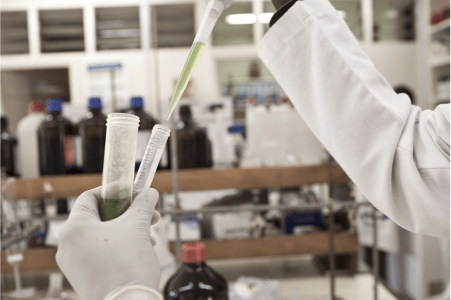 Key points Famoxadone is no longer approved within the European Union (EU) as of September 2021. EU approval was not renewed for acrinathrin, prochloraz and indoxacarb and will expire at the end of December 2021. The EU has also notified the World Trade Organization (WTO) of its intention to adapt the conditions of approval of sulfoxaflor. How will ACP producers/exporters be affected? Non-renewal means that these PPPs can no longer be legally used within EU countries. This also has an… +
Key points Famoxadone is no longer approved within the European Union (EU) as of September 2021. EU approval was not renewed for acrinathrin, prochloraz and indoxacarb and will expire at the end of December 2021. The EU has also notified the World Trade Organization (WTO) of its intention to adapt the conditions of approval of sulfoxaflor. How will ACP producers/exporters be affected? Non-renewal means that these PPPs can no longer be legally used within EU countries. This also has an… +Update on EU MRL changes
- 15/12/2021
- Posted by: Gaetan Dermien
- Category: Africa, Angola, Belize, Benin, Botswana, Burkina Faso, Burundi, Cameroon, Cape Verde, Caribbean, Central African Republic, Chad, Comoros, Cook Islands, Côte d'Ivoire, Country, Democratic Republic Of The Congo, Djibouti, Dominica, Dominican Republic, Equatorial Guinea, Eritrea, Eswatini, Ethiopia, Fiji, Gabon, Gambia, Ghana, Guinea, Guinea-Bissau, Headline, Jamaica, Kenya, Kiribati, Lesotho, Liberia, Malawi, Mali, Mauritania, Mauritius, Mozambique, Namibia, News, Niger, Nigeria, Pacific, Papua New Guinea, Republic of the Congo, Saint Kitts and Nevis, Saint Lucia, Saint Vincent and the Grenadines, Sao Tome and Principe, Senegal, Sierra Leone, Sudan, Suriname, Tanzania, Timor-Leste, Togo, Tonga, Trinidad and Tobago, Tuvalu, Uganda, Vanuatu, Zambia, Zimbabwe
 Key points Since the start of 2021, there have been European Union (EU) maximum residue level (MRL) changes concerning 123 plant protection products (PPPs), compared with 59 in 2020. These changes refer to modifications to the previous regulation, and can be either an increase or lowering of the MRLs for certain foods. Since the latest Flash Info in August 2021, there have been changes to 40 PPPs, 13 of which are key for ACP horticulture (acrinathrin, ametoctradin, spinetoram, fludioxonil, fosetyl-aluminium,… +
Key points Since the start of 2021, there have been European Union (EU) maximum residue level (MRL) changes concerning 123 plant protection products (PPPs), compared with 59 in 2020. These changes refer to modifications to the previous regulation, and can be either an increase or lowering of the MRLs for certain foods. Since the latest Flash Info in August 2021, there have been changes to 40 PPPs, 13 of which are key for ACP horticulture (acrinathrin, ametoctradin, spinetoram, fludioxonil, fosetyl-aluminium,… +
